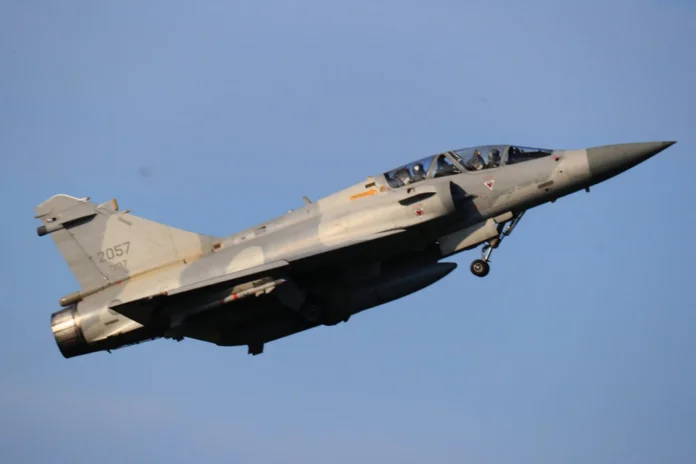
France has commenced the withdrawal of its military forces from Chad, a key ally in counterterrorism efforts across the Sahel region.
On Tuesday, two Mirage 2000-D fighter jets, stationed in the Chadian capital of N’Djamena, took off from a French military base, marking the first stage of France’s departure from the central African country.
This move follows Chad’s decision to end its defense cooperation agreement with France last month.
Chad has been a crucial partner in France’s efforts to combat Islamic extremism in the region, particularly through its participation in counterterrorism operations against militant groups linked to Al-Qaeda and the Islamic State.
The withdrawal of French forces from Chad is part of a broader shift in France’s military presence in the Sahel, where it has faced increasing challenges over the past few years.
In recent months, France has been ousted from several other West African countries, including Niger, Mali, and Burkina Faso, where governments have sought closer ties with Russia, a growing influence in the region.
The Russian-backed Wagner Group has been active in the Sahel, providing military support and increasing its presence amid France’s diminishing role.
The departure of the Mirage 2000-D jets from Chad’s N’Djamena base was witnessed by Chadian military officials who bid the French forces farewell.
Col. Guillaume Vernet, a spokesman for the French military, confirmed the jets were returning to their home base in Nancy, France.
Despite the jets’ departure, negotiations between French and Chadian officials are ongoing to determine the timeline and conditions under which the remaining 1,000 French troops in Chad will leave.
These troops have been stationed in the country as part of France’s broader counterterrorism operations aimed at stabilizing the region.
Chad has been a vital force in the fight against jihadist groups operating in the Sahel and the Lake Chad Basin.
The country’s military, led by President Mahamat Idriss Déby, has worked alongside French forces as part of joint military operations to curb the spread of extremism in a region that has seen increasing instability due to terrorist activity.
However, tensions between the two nations have risen in recent years, particularly following political shifts within Chad and the broader African continent.
Chad’s decision to cut ties with France is also part of a growing trend of African countries asserting their sovereignty and reducing colonial-era influences.
While Chad has maintained a pro-Western stance in the past, the recent withdrawal of French forces reflects a shift in its foreign policy.
The country has already begun forging closer relationships with other powers, including Russia and China, both of which have offered military and economic support.
The French withdrawal is a significant change in the strategic landscape of the Sahel, where France has long been a dominant military presence.
As French troops leave Chad, the region’s security dynamics are likely to shift, with new geopolitical alignments and challenges emerging.
While France’s official stance is to maintain partnerships with African nations in the fight against terrorism, the departure from Chad signals the end of a chapter in its post-colonial military engagement in the region.
The continued withdrawal of French forces from the Sahel raises questions about the future of regional counterterrorism efforts and whether the void left by French forces will be filled by other international powers, including Russia.
For now, the focus remains on how France will navigate its exit from Chad and whether its remaining forces will also be withdrawn in the coming months.